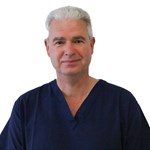Contact us about treatment for rhinitis
It's easy to find out more about treatment or book a consultation by giving us a call or completing our enquiry form.
Rhinitis is inflammation in the inside of your nose which causes congestion and the production of mucus. This can be of allergic and non-allergic origin.
The symptoms of a blocked nose can have a frustrating and significant negative effect on your quality of life, but if investigated and treated early, can often be easily and rapidly cured without the need for surgery.
Consultant ENT Surgeon, Mr Bertram Fu, discusses our range of self-pay ENT treatments.
My name is Bertram Fu. I'm a fully trained ENT consultant surgeon. It's basically a subjective feeling of having a blocked nose. It may affect one nostril, both nostrils. It may affect a person temporarily or of a more permanent nature and it may just be a small annoyance in their life, or it may be very severe to the point that it is affecting their ability to eat, to exercise, to sleep and it may have a major impact on their quality of life.
Number one, septal deviation, which is usually a result of previous nasal injury. Two, enlargement of the turbinates, which are usually related to having allergies or other types of rhinitis.
And last, but not least, we often see nasal polyps as well, which is a result of chronic rhinosinusitis. There are different medical and surgical treatments available for these conditions. This may include antibiotics, antihistamine and steroid tablets, steroid-containing nasal sprays and also surgical. Treatment may include different operations to restore and enlarge narrow nasal passages.
We would offer the patient an initial consultation in the clinic. The patient will be seen by a consultant surgeon, we will have a discussion about the condition, the problems. We do an examination of the nose, which often would include an endoscope instrument.
And after the examination and the clinical assessment, we have a further discussion with the patient in regard to the findings and recommend appropriate investigation and treatment plan.
Become a Benenden Health member, become a self-pay patient. And last but not least, you can also come to see us as a private medical insurance patient.

Consultant ENT Surgeon
Mr Balfour's specialties include thyroid surgery, head and neck surgery and rhinology.
Language(s): English
Location(s): Kent

Consultant ENT Surgeon
Mr Dhar is a specialist ENT Consultant at Benenden Hospital
Language(s): English
Location(s): Kent

Consultant ENT Surgeon
Mr Fu is a qualified Rhinologist with a special interest in nasal and sinus conditions. His specialities include otolaryngology and rhinology.
Language(s): English
Location(s): Kent

Consultant ENT Surgeon
Mr Hickson's specialties include otology, rhinology, general ENT, balance and hearing implant surgery.
Language(s): English
Location(s): Kent

Consultant ENT Surgeon
Mr Robert Hone is a ENT Consultant at Benenden Hospital
Language(s): English
Location(s): Kent

Consultant ENT Surgeon
Mr Sharp's specialties include rhinology and non-cosmetic nasal plastic surgery.
Language(s): English
Location(s): Kent
It's easy to find out more about treatment or book a consultation by giving us a call or completing our enquiry form.